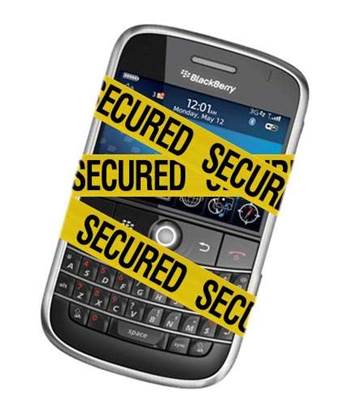
Personal data that is not backed up will be lost forever with the execution of a kill command. However, as most corporate data is stored on the Exchange server, it can easily be restored on a replacement device.
Rick Anderson, who is Microsoft’s Enterprise Mobile Solution Specialist, said that the technology is focussed on reducing the chance of corporate data being compromised by reducing the window of opportunity.
He noted that Windows Mobile 6 has attained the Common Criteria EAL2+ Assurance Level after assessment by the Defence Signals Directorate (DSD), and has been accepted for use in the Australian Government's official communications and information systems.
“You certainly have your mobile phone everywhere, so you have to be conscious of the fact that you can lose it, by leaving it on the train for example,” he said.
“Blackberry and us [Microsoft] would probably be the ones to look at in terms of corporate mobile solutions,” he told iTnews.
Meanwhile, Hewlett-Packard (HP) has added to its notebook range the HP Compaq 6720t, which features an embedded, write-protected operating system.
The 6720t is a mobile thin client which, like conventional desk-based thin clients, is designed to provide access to virtual computing solutions, such as blade PCs or virtual desktop infrastructure.
It is a solid-state system with flash memory and no moving parts. No data is stored on the device, so sensitive data is not compromised in case of loss of theft.
“From a thin client point of view, it’s [corporate data] all secured in a data centre,” said Fiona Wright, who is HP Australia’s Market Development Manager for Thin Clients.
“For example, if an agent is on the road and left the device somewhere, their sensitive information would not be lost or compromised,” she told iTnews.
The 6720t was released in July 2008 as the commercial world’s first thin client that has been built for mobility.
However, the fact that it relies on server-based data and applications may somewhat limit users’ movements.



_(22).jpg&h=140&w=231&c=1&s=0)





_(26).jpg&w=100&c=1&s=0)

 iTnews Executive Retreat - Security Leaders Edition
iTnews Executive Retreat - Security Leaders Edition











_(1).jpg&h=140&w=231&c=1&s=0)



